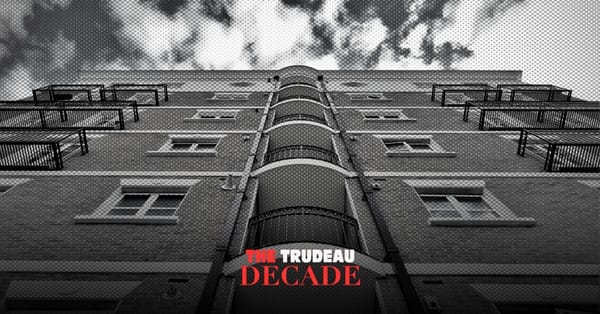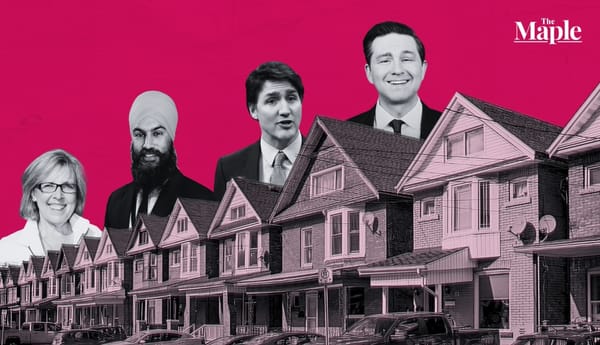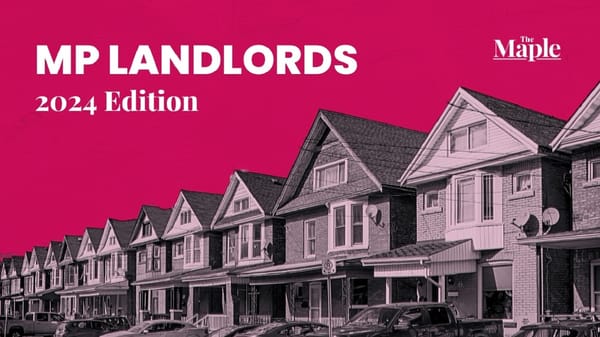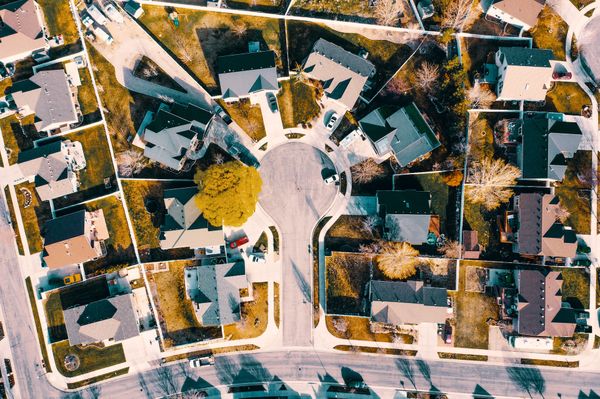What do you do if you’re a young person in Canada and want to buy a house? According to a Globe and Mail article published last week, you ask your parents for help or wait for them to die.
The Canadian Real Estate Association’s (CREA) National Price Map states that the average cost of a home across Canada rose an eye-watering 41.9 per cent from April 2020 to April 2021.
Vancouver is at the top of the unaffordable heap: An average non-condo home in Rain City costs $1.38 million, and it would take a median earner 32 years of saving (at 10 per cent of income) to afford a deposit. The mortgage alone would take up 78 per cent of a median income.
Vancouver is, in technical terms, a monumentally fucked situation. But other places are heading that way too. Global News did some inflation-adjusted calculations for an article published in April, and found the cost of homes in the Greater Vancouver Area, the Greater Toronto Area, and Montreal and Ottawa-Gatineau to be near 12, 11 and six times the average local income respectively.
Moreover, by comparing 2018 median annual family income data and 2021 housing prices, we can see that house prices in British Columbia, Ontario, and Quebec are nearly 11, 10, and 5.5 times the median household income in the province respectively.
Saskatchewan is the most affordable of any province or territory — average homes cost about 3.2 times as much as a typical household makes — but, even there, the CREA records home prices rising by 10.5 per cent from April 2020 to April 2021.
These affordability ratios work on average or median incomes of course, meaning people earning lower incomes, more likely to also belong to marginalized groups, have even less of a chance of buying a home.
So, let’s circle back to that Globe and Mail article. It’s concerned about rising house prices, but only because it means parents have to give more money to their adult children. The article focuses on parents passing on 25 per cent down payments to their kids, as well as reverse mortgaging their home to avoid their children being stuck with bad mortgage interest rates.
The subscriber-only article also effectively tells well-off parents that this is how they can help their children, and provides adult children with a better understanding of how their house-rich parents can leverage that capital to their benefit. There’s no mention of whether houses are over-valued, and what happens when the property bubble bursts.
This way of talking about housing makes it seem like rises in home prices are inevitable: like, of course it’s getting more expensive to buy a house, duh. What it ignores is that these rises aren’t natural, and they don’t impact everyone equally. In fact, they stand to benefit the very people the article focuses on.
These people love watching house prices rise, as it makes them richer with no effort on their part. If you have a nice family home in a big city, a 40 per cent price increase means your $2 million house is now worth an extra $800,000 in the space of one year. Parents can use that extra capital to help their kids buy a home, which they assume will also rise in value, and thus create a net wealth gain.
The very problem that the article portrays these young people as facing is one that benefits their parents, and ultimately themselves. Yet it does genuinely hurt parents that don’t own property or that live in a less profitable housing market, people who have dead or estranged families and so many others.
Rising house prices help entrench wealth: The rich get to buy multiple houses and rent them to the working class that can’t afford anything else for ever-rising values. Your rental dollars go toward building someone else’s wealth rather than your own.
Talking about house prices as things that increase naturally means we don’t have to examine the reasons behind those booms. Is it greed? Bad housing policy? Xenophobic references to “foreign investment”? An ongoing lack of social housing due to the historical austerity of conservative governments?
No, no, don’t be silly. House prices just go up. And if you don’t have parents who can help you, then you didn’t deserve to buy a home in the first place.







